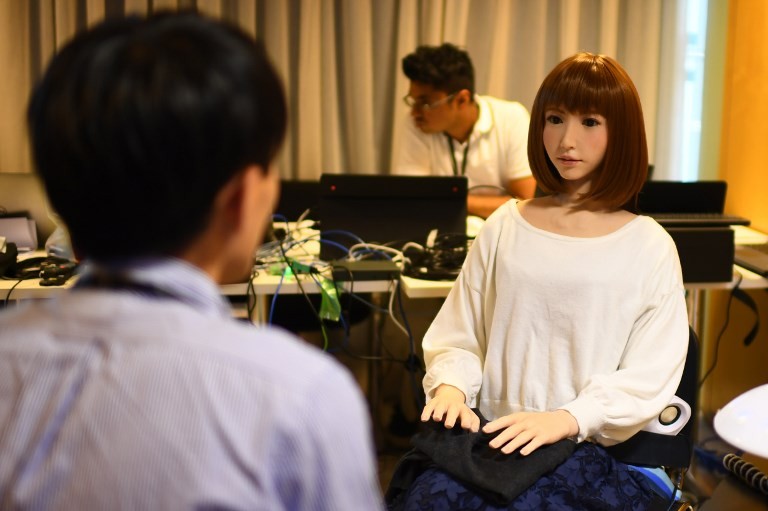Popular Reads
Top Results
Can't find what you're looking for?
View all search resultsPopular Reads
Top Results
Can't find what you're looking for?
View all search resultsFive things to look forward to in the future
To advance toward the net-zero transition by mid-century, it is imperative to seize opportunities to foster cleaner air and clean electrification.
Change text size
Gift Premium Articles
to Anyone
W
hat might the world look like in 2025? In autumn 2020 the World Economic Forum convened expert-led Global Future Councils (GFCs), time-bound think tanks, to explore that very question.
Over two years the nearly 1,000 experts met regularly in virtual meetings to examine the future of more than 30 areas across the economy, environment, society and technology. We tasked them: What challenges and opportunities lie ahead in your area of focus? And crucially, how can policymakers, decision-makers, and the public make it happen in by 2025?
Today their reflections are shared in a report, “Future Focus 2025: Pathways for Progress” from the Network of Global Future Councils 2020-2022. This report is intended to be a framework around which a positive and inspiring agenda for the future can be built.
Here are five key trends identified by the Network of GFCs.
First, mental wealth.
The COVID-19 pandemic loomed large throughout the term of the GFC, and the disruptions the pandemic brought to our everyday lives finally put mental health on the agenda of many countries in an enduring way.
The GFC on Mental Health envisions a future where digital technologies are a robust additional tool for providing mental health solutions to populations and geographies that would be difficult to access through traditional in-person care; where national mental health policies are supported by robust data on community needs and treatment outcomes; and where “mental wealth”, an approach that integrates the mental health of populations into measures of social and economic progress, becomes an important consideration in evaluating the prosperity of nations.
Second, career transitions.
The pandemic underscored stark disparities in equality of opportunity in the labor market. Addressing the disruption to jobs, wages and work requires a cross-sectoral, multistakeholder effort.
The GFC on Work, Wages and Job Creation envisions a future where collaborative, large-scale action invests in new economy sectors and emerging roles; supports workers through job and career transitions; and provides minimum and living wages to ensure economic dynamism and build a vibrant and sustainable ecosystem with an employable and productive workforce in good-quality jobs.
Technology can be deployed to better match displaced workers with jobs – for example, AI-supported redeployment – and programs initiated by both the public and private sector can explore streamlined approaches for reskilling, for example to allow for scaling up of the adoption of micro-credentials.
Third, climate-friendly tourism.
To advance toward the net-zero transition by mid-century, it is imperative to seize opportunities to foster cleaner air and clean electrification, to support the energy transition, and to leverage nature-positive business practices. One additional, unexpected way to reach this goal? Through tourism.
The GFC on Sustainable Tourism envisions a future where tourism marketing and management organizations develop principles for sustainable destinations that drive the behavior of businesses, governments, and travelers, and where examples of destinations that preserve culture and natural resources are shared widely as inspiration of what might be possible. A broader effort supports the blue (ocean-based resources) and green (land-based resources) economy through guidance to investors in the travel and tourism sector, and directly to travelers as well.
Fourth. inclusive artificial intelligence (AI).
As the development and deployment of AI continues apace, stakeholders from all sectors are keen to grapple with its unknowns in an inclusive way to ensure that the design of this technology mitigates the risk of harm in deployment.
The GFC on Artificial Intelligence for Humanity envisions a future where more diverse voices are involved in the development of AI through wide-ranging educational initiatives on tech literacy, especially those focused on underrepresented and impacted groups, and corporate mentorship and skills development programs.
It also sees a key role for structural, technical solutions to promote fairness and counter bias such as integrating explainability, transparency, robustness, bias and fairness principles into programming standards, protocols, logic and encryption. Among other solutions, the GFC recommends expanding linguistic diversity around AI, including by improving technical capabilities in various languages of AI capabilities, including by expanding training sets and funding AI-based text recognition in new languages.
Fifth, more resilience and long-termism.
The geopolitical crisis that emerged not long after these council visions were finalized in spring 2022 is a reminder that while one crisis may loom large, the global community needs to keep a long view, including the overall health of society and its readiness for change. As compound global risks continue to evolve, setting a sustainable, inclusive growth agenda with clearly defined visions, pathways and partnerships will become the key to future prosperity.
Given the interdependence of global issues, an effective public- and private-sector, global response is required to set the ambition and address these issues more holistically through partnerships and policy.
The work of the Network of GFCs is an important step in envisioning the future we want.
***
The writer is head of knowledge communities, global programming, World Economic Forum.











